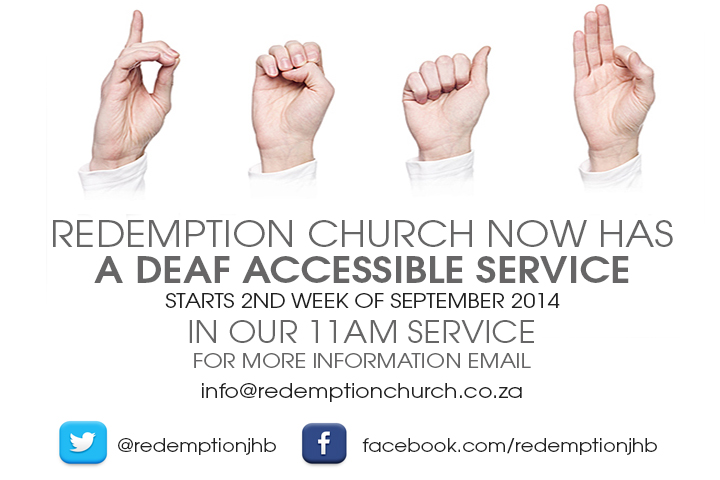The Origins of Zwakala
For years the Deaf have felt excluded from mainstream competitions in the performing arts, and in 2006 DTV took on the challenge of changing this. Zwakala (a Zulu term for “be heard”) was born out of a need to recognise creative talent within the Deaf community, and it follows DTV’s infamous creed of by the Deaf, for the Deaf.
The DTV team were fortunate enough to receive the blessing, and patronage, of the late MaSisulu, and in 2007 the first Zwakala contest took place. The theme of the first contest was “A Birthday Card for Madiba”. 95 learners entered the contest, with 6 learners making it through to the finals. Since then the DTV team have worked tirelessly to continue growing the event, and generating additional exposure of the talent that participates. The strong support of the SABC, the Department of Arts & Culture, the Department of Education, DeafSA, PanSALB and the Deaf community, have helped turn Zwakala into a recognisable, strong and sustainable brand.
Zwakala has gone from reaching all the schools for the deaf in South Africa, to crossing borders and now also involving learners from the SADC region. In 2013 this saw the inclusion of schools and learners from:
- Botswana,
- Lesotho,
- Mozambique,
- Namibia,
- Swaziland, and
- Zimbabwe.
From 2014, the following countries are also included:
- Tanzania,
- Zambia,
- Seychelles, and
- Malawi
This means this years Zwakala event will be the biggest so far. South Africa alone drew 105 entries, and the gala event in early 2015 will showcase the talents of 88 finalists from 11 countries.
The Objectives of Zwakala
The objectives of Zwakala focus specifically on the Deaf, Deaf culture and regional culture, creativity and development. They include:
- Providing a platform for Deaf learners to perform poetry, stories and drama in Sign Language.
- Promoting the use of South African Sign Language, and the Sign Language of other countries in the region.
- Providing Deaf learners with an opportunity to explore the arts in a creative and interactive manner.
- Helping Deaf learners to develop their expressive abilities.
- Helping learners to gain confidence in themselves, and their signing abilities.
- Giving Deaf learners in all the South African provinces, and now the SADC region, an opportunity to come together, and to learn from one another.
- Allowing children to fully explore Deaf culture in terms of the role that poetry, story-telling and drama play in the richness of Deaf culture.
- Fostering Deaf pride by organising a contest on par with hearing contests of a similar nature.
In 2011, a song was composed for the event, and first performed by Mango Groove, and signed by Candice Morgan. The song incorporates elements of the struggle that followed the controversial Milan congress in 1880, while providing hope for the future. The song also incorporates the main objectives of Zwakala.
Zwakala Accolades
The success of Zwakala is evident not only in how the event has grown over the years, but also in its other achievements. From PanSALB acknowledging the huge contribution of Zwakala by awarding the team the PanSALB Multilingual Award for the promotion and development of South African Sign Language on Television, to the winner of the 2008 event, Darren Rajbal, going on to win SA’s Got Talent.
Zwakala’s new patron, Minister Lindiwe Sisulu recently shared her thoughts on Zwakala:
Since taking over as patron of Zwakala a wondrous world has opened up for me; a wondrous world where young, very talented, very courageous, very intelligent young people showed me the limits of possibilities are only defined by ourselves. I was truly touched and glad I was chosen as patron. The young people proved that each one of us has the will to beat whatever odds are perceived or whatever odds we encounter! The possibilities are limitless.
The Zwakala Contest
The contest is divided into four categories:
- Category A – Individual Story-Telling (ages 5-10)
- Category B – Individual Musical Category (all ages)
- Category C – Individual Talent (all ages)
- Category D – Group Drama (all ages)
Each country is responsible for judging their own entrants, and selecting finalists, and all finalists are later flown to Johannesburg for a gala event where the overall winners in each category are selected. All finalists receive a complimentary gift bag, while the winners in each category receive prizes totaling more than R200,000.
Regional judging in the SADC countries has not been completed yet, but the provincial judging in South Africa took place during May 2014. Invitations to participate where sent out to various schools for the deaf throughout South Africa, broken down as follows:
- Gauteng – 7 Schools Invited
- KwaZulu-Natal – 8 Schools Invited
- Limpopo – 5 Schools Invited
- Mpumalanga – 2 Schools Invited
- North-West – 2 Schools Invited
- Western Cape – 7 Schools Invited
- Eastern Cape – 3 Schools Invited
- Free State – 2 Schools Invited
- Northern Cape – 1 School Invited
The judging panel included:
- Modiegi Moime
- Jan Engelen
- Atiyah Asmal
and on the 28th of July 2014 they announced the following finalists from South Africa:
- Category A – Robaida Mohammed (Durban School for the Impaired)
- Category B – Isaa Mabuza (VN Naik School for the Deaf & Hard of Hearing)
- Category C – Lebephe Mahlatsi – Setotolwane Elsen Secondary School
- Category D – Bartimea School for the Deaf & Blind
They, along with the finalists from the SADC countries, will participate in the Zwakala finals from 24-26 February 2015, with the gala event taking place on 27 February 2015. The judges for the finals are:
- Dr John Kani
- Alison Swannack
- Bibi Ramjurgenath
- Ismael Mansoor
Further details, including profiles on all the judges, will be published here over the coming weeks.



